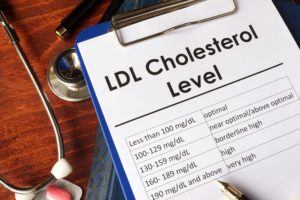 Researchers have made a breakthrough that could give traditional cholesterol treatment an upgrade. The researchers at the University of New South Wales Sydney uncovered how cholesterol is transported in cells, shedding light on a potential new treatment method that would allow the body to create more HDL cholesterol (good cholesterol).
Researchers have made a breakthrough that could give traditional cholesterol treatment an upgrade. The researchers at the University of New South Wales Sydney uncovered how cholesterol is transported in cells, shedding light on a potential new treatment method that would allow the body to create more HDL cholesterol (good cholesterol).
The most prescribed drugs for cholesterol are statins. They work by blocking the synthesis of LDL cholesterol in the liver. Although statins are effective at stopping LDL cholesterol, they do little to help the production of HDL cholesterol. There is currently no drug on the market which can help increase HDL cholesterol.
Advertisement
This is where the new research findings come into play. The researchers uncovered a protein called ORP2, which takes cholesterol from the cell’s organelles and delivers it to the surface membrane. From there, the cholesterol can be used as structural material to provide strength and flexibility.
Professor Rob Yang explained, “HDL is produced by the plasma membrane of the cell. When there is an abundance of cholesterol produced in the cell, some of it leaves the cell via the plasma membrane to form HDL, which is then transported around the body. Knowing the molecules that deliver cholesterol to the plasma membrane itself is a huge step forward. The transport of cholesterol to the plasma membrane is the key to the generation of HDL. ORP2 can increase the amount of cholesterol that leaves the cell, a process called cholesterol efflux. We think this pathway will be very important for the development of a drug to increase this good cholesterol.”
Professor Yang explained that his findings help answer the question of how cholesterol reaches the plasma membrane. He suggests we need to increase the amount of OPR2 proteins in the cell or enhance their efficiency in order to improve the amount of cholesterol delivered to the cell.
Yang suggests that if a drug could be developed to improve ORP2, it would be a complementary treatment to statins, making them more effective and further reducing LDL cholesterol in those with high levels.
Also read:
